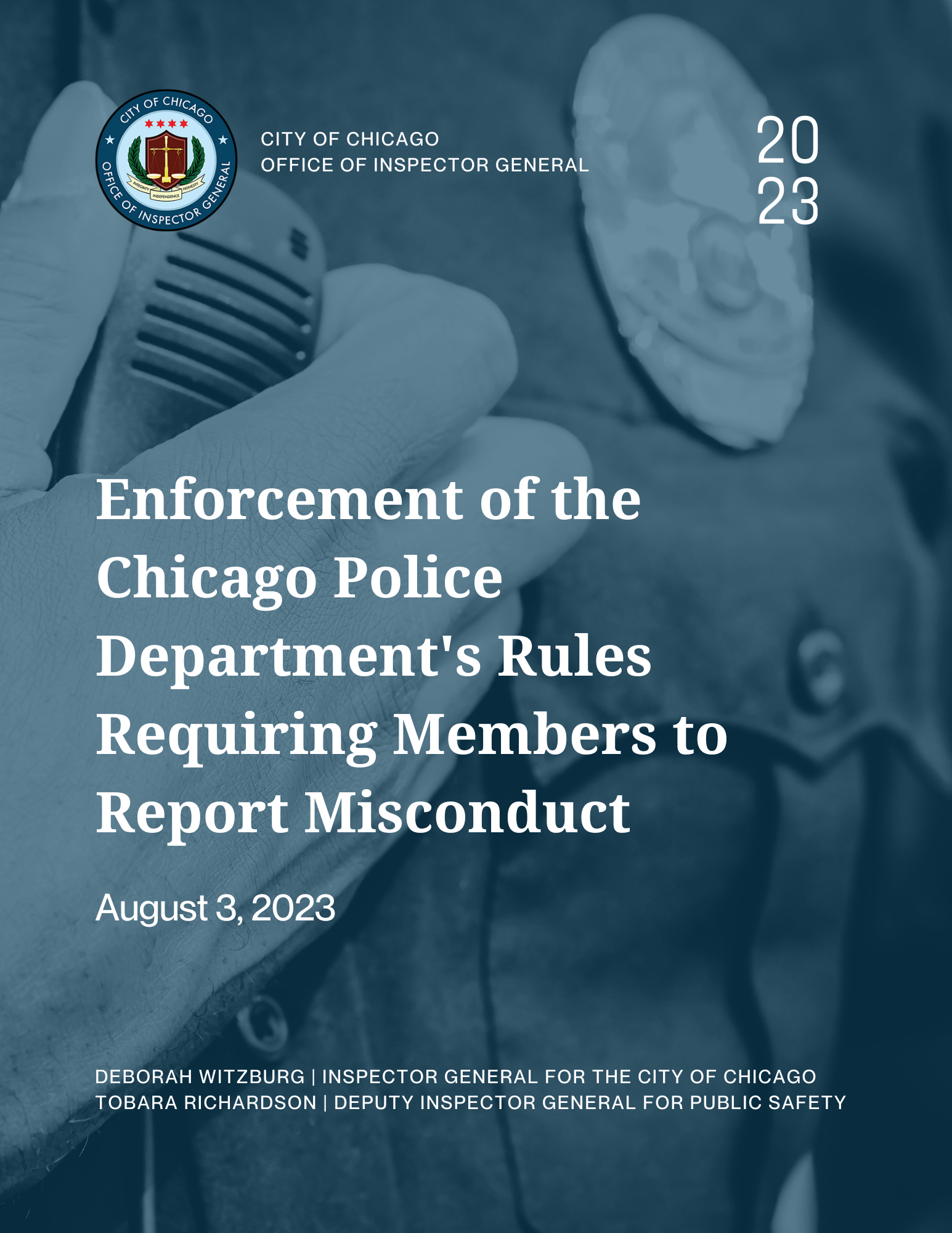Enforcement of Chicago Police Department’s Rules Requiring Members to Report Misconduct
Summary
As mandated by the consent decree entered in Illinois v. Chicago, the Public Safety section of the City of Chicago Office of Inspector General has conducted an inquiry into the enforcement of the Chicago Police Department’s Rules 21 and 22.
Executive Summary
Requirements which mandate CPD members to report misconduct by other members are in tension with the cultural “code of silence” which City leadership has acknowledged throughout the last decade. In order to overcome reticence to report misconduct and the fear of retaliation, policy experts suggest that members of law enforcement agencies should have multiple ways to report peer misconduct, including anonymously. Although requirements in the consent decree entered in Illinois v. Chicago and CPD’s directives aim to encourage and improve CPD members’ reporting of misconduct, OIG found that CPD members are currently operating under two sets of policies at odds with one another—one that ostensibly allows them to report misconduct in a myriad of ways, and another that invalidates any reporting done outside the Department’s chain of command.
The objectives of OIG’s inquiry were to determine whether:
• CPD’s current training accurately and thoroughly educates members on expectations of
compliance with Rules 21 and 22;
• the methods currently available to Department members to report misconduct align with the
purpose of Rules 21 and 22;
• the available complaint data from COPA and BIA demonstrates compliance with and
enforcement of Rules 21 and 22; and
• any structural obstacles exist that prevent the effective compliance with or enforcement of
Rules 21 and 22.
Subscribe to the OIG Bulletin to get notified about future publications.

